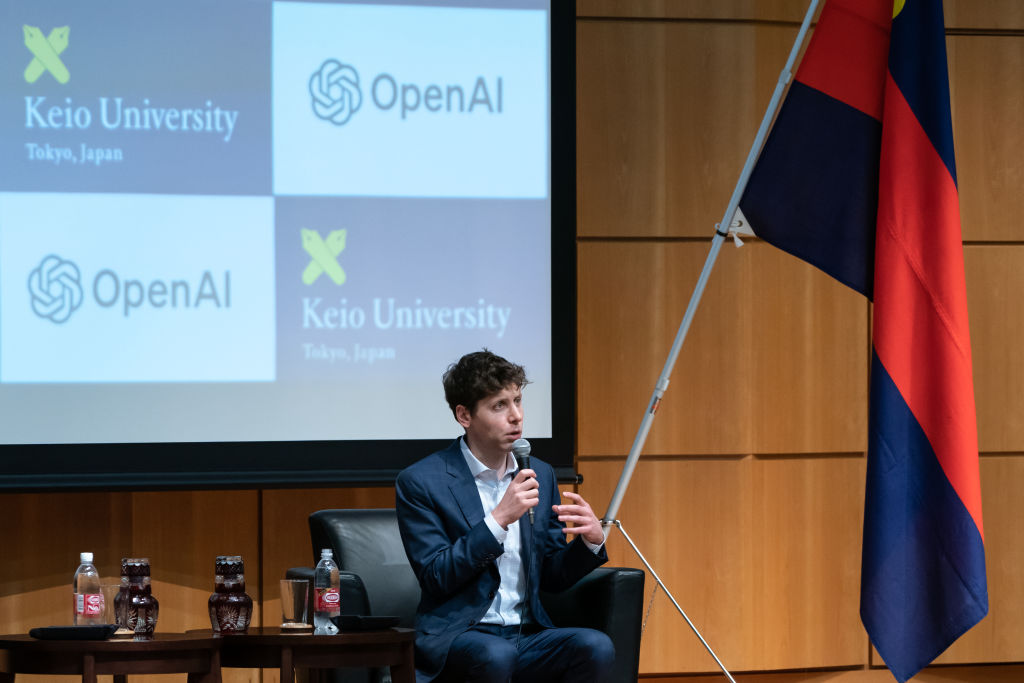Traditional media revenue streams won’t stand a chance in a race with AI

If social media challenged the traditional advertising revenue of media organisations, artificial intelligence threatens to annihilate it, writes Dominic Young.
Government’s of the Industrial World, you weary giants of flesh and steel, I come from Cyberspace”, said cyber campaigner John Perry Barlow in his Declaration of the Independence of Cyberspace back in 1996. “On behalf of the future, I ask you of the past to leave us alone. You are not welcome among us. You have no sovereignty where we gather.”
Barlow largely got his wish. Governments around the world acted to exempt internet platforms from laws which apply in the real world of flesh and steel he so despised.
We’ve been living with the consequences ever since. The big platforms operate to largely self-written rules, and the web has gradually become a polluted swamp.
The media is drowning in this swamp. With advertising revenue sucked away, and other revenue sources frustratingly elusive, we now have generative AI entering the fray and with it, fresh concerns for journalism.
Generative AI is already capable of amazing things. But warnings are being sounded too. It feeds off the work of creative humans to produce plausible – if not truthful – content faster and more cheaply than any human could keep up with. It has no need to witness events, talk to people or check information. Laws like copyright, designed to prevent unauthorised copying and use of other peoples’ work, are routinely ignored on the internet and, so far, by AI systems too.
The implications are profound for publishers, and democracy, which relies on trustworthy news sources to keep us informed. AI systems can easily present fictions as facts. But who can hold the machines to account? Who is accountable for the truth and legality of their output? Right now, it would seem, nobody.
The media industry is one of many lobbying for better regulations. These rules should, among other things, defend copyright and outlaw using content to train AI systems without permission, as well as resisting the desire of the tech sector to avoid regulation and set its own rules for AI. As media academic Emily Bell put it, who would set foot on a plane if airlines ran the Federal Aviation Administration?
Regulation may help eventually, but the publishers can’t wait for politicians to wrap their heads around the threat and should act preemptively to minimise the potential harm AI could bring to its revenues.
This will require yet another rethinking of how people discover and consume their content. Can we make it easier to navigate between trusted sources, instead of handing people off, back-and-forth, to search and scroll through social platforms? If we can, we can take advantage of our enormous shared network and reduce our dependence on those platforms. Of course, this requires a certain level of working together; camaraderie with competitors is not always a strength of media organisations.
Second, if we’re going to reduce our dependence on advertising, we need to make consumer revenues a reality for any publisher. The subscription model on its own is too limited to achieve this, locking all but the most engaged out on the other side of the paywall.
We need a consumer payment model for the rest of us. This opens the prospect of a digital equivalent to a supermarket, where anyone can access and pay for whatever they want without encountering constant barriers.
Perhaps most urgently in the AI era, publishers must do a much better job of telling us when what we’re reading can be trusted.
What makes legitimate news publishers more trustworthy? For a start, they’re fully accountable for what they publish. They have names, and addresses; they’re corporations with offices. They have journalists who are named. They are accountable to their reputations, to their audiences and to their ethics. Legitimate publishers are fully accountable to their legal systems and courts as well as their readers.
The media’s declaration of independence – from the platforms, from the unwinnable race for ad revenue, from the constant battle to stay afloat and, maybe even from the hope that politicians and regulators will ride to the rescue – can give it back control of its own commercial destiny.